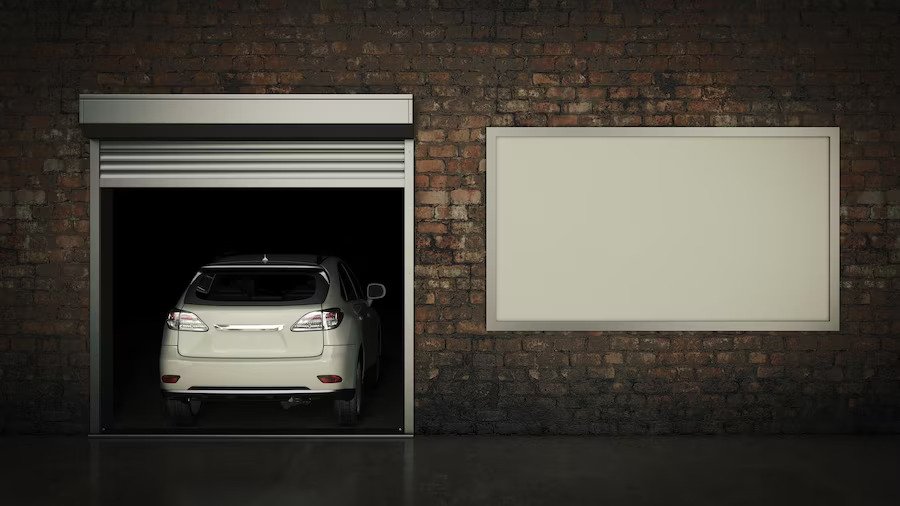Planning a vacation is exciting, but one often overlooked aspect is how to safely store your car while you’re away.
Whether it’s a short weekend getaway or an extended trip, proper car storage ensures your vehicle remains protected and in good condition upon your return.
Here Are Eight Steps To Properly Store Your Car Before A Vacation
In this blog, we’ll provide you with essential tips and guidelines to help you store your car securely and worry-free.
Choose the Right Location
Finding a suitable storage location for your car is crucial. If you have access to a garage or a secure parking spot, it’s an ideal option. Indoor storage protects your vehicle from the elements and potential theft. But your money won’t be wasted, as these locations often offer climate-controlled environments and enhanced security measures, such as surveillance cameras and alarm systems.
Furthermore, if you don’t have personal space, consider renting a storage unit or a dedicated car storage facility. In a pinch, it might even be smart to ask a family member or friend if they can watch your vehicle while you are away.
Prepare Your Car For Mot Being Used
Before storing your vehicle, it’s essential to properly prepare it to avoid any potential damage. Clean your car inside and out to remove any dirt or debris that could attract pests or cause corrosion. Fill up the gas tank and add a fuel stabilizer to prevent fuel degradation.
Check the oil level and change it if necessary. Inflate the tires to the recommended pressure and consider placing the car on jack stands to prevent tire flat spots. Finally, disconnect the battery or use a trickle charger to maintain its charge during storage.
Protect Against the Elements
Protecting your car from the elements is crucial, especially if you’re storing it outside. If possible, use a breathable car cover to shield the vehicle from dust, UV rays, and rain. Avoid using plastic covers that can trap moisture and potentially damage the paintwork.
If storing indoors, ensure the environment is dry and adequately ventilated to prevent moisture buildup and mold growth. Additionally, consider applying a coat of wax to protect the paint and applying a rust inhibitor to susceptible areas, such as the undercarriage and exposed metal components.
Prevent Flat Spots and Mechanical Issues
Extended periods of inactivity can lead to flat spots on your tires and mechanical issues. To avoid this, inflate the tires to the recommended pressure and move the car slightly every few weeks to prevent prolonged contact with the ground.
Ask a trusted friend or family member to drive your car occasionally to maintain its condition. Furthermore, consider using a fuel stabilizer and periodically starting the engine to keep the mechanical components lubricated and prevent the battery from draining. The car accident attorneys at Haque Legal note that properly maintaining your vehicle can not only increase your vehicle’s lifespan but also prevent accidents.
Remove Perishable Items
Remove any perishable items from your car before storage. Food items can attract pests and cause unpleasant odors or damage. Clean the interior thoroughly, including the trunk, to eliminate any potential food residue.
Check Your Insurance
Before storing your car, review your insurance policy. Some insurance companies offer specialized storage coverage that may be more suitable and cost-effective during the storage period. Adjusting your coverage appropriately can help you save money while ensuring your vehicle is protected.
Protect Against Rodents
Believe it or not, if left alone, rodents can cause significant damage to your car’s wiring and interior components. To prevent infestation, place mothballs, cotton balls soaked in peppermint oil, or other rodent deterrents in and around the vehicle. Additionally, seal any openings where rodents could enter, such as exhaust pipes or air intake vents.
Maintain Battery Health
If you’re storing your car for an extended period, the battery may lose its charge. To prevent a dead battery, either disconnect it entirely or use a battery maintainer or trickle charger to keep it charged throughout the storage period. This will ensure that your car starts up smoothly when you return.
Storing your car correctly while you’re on vacation is essential to ensure it remains in top condition. By choosing the right location, preparing your car, protecting it against the elements, and preventing mechanical issues, you can return from your trip to a well-maintained vehicle ready for your next adventure. Follow these tips, and you’ll have peace of mind knowing your car is secure during your time away.
Read Also:













